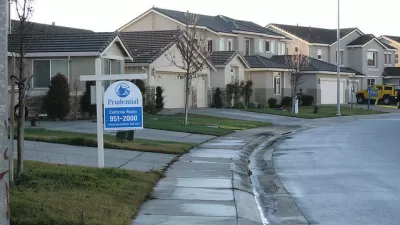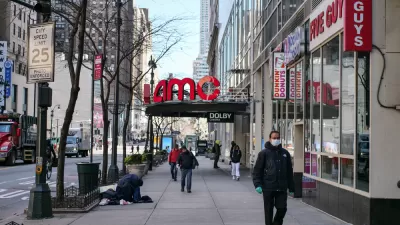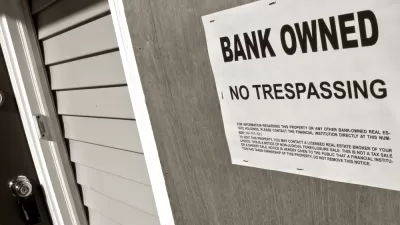New data show the resilience of walkable commercial areas through the recent recession. Parking minimums, however, prevent new projects from taking advantage of the strengths of such development patterns.
"Neighborhood walkability has been a huge asset for commercial landlords during the recovery from the 2008 recession," reports Matthew Yglesias using a dataset from Moody's and Real Capital Analytics that breaks down commercial real estate prices by WalkScore.
From an infographic created for the dataset, Yglesias produces the following conclusion: "whether it's in suburbs or in central business districts, prices have rebounded from the recession much more strongly in walkable areas than in car-dependent ones…"
As for why that might be, Yglesias argues that car-based retail has suffered the impacts of online retail services like Amazon. "Bars, restaurants, and homey shops that don't compete directly with Amazon work better in walkable areas."
FULL STORY: Neighborhood walkability is good for the commercial real estate bottom line

Planetizen Federal Action Tracker
A weekly monitor of how Trump’s orders and actions are impacting planners and planning in America.

Maui's Vacation Rental Debate Turns Ugly
Verbal attacks, misinformation campaigns and fistfights plague a high-stakes debate to convert thousands of vacation rentals into long-term housing.

Restaurant Patios Were a Pandemic Win — Why Were They so Hard to Keep?
Social distancing requirements and changes in travel patterns prompted cities to pilot new uses for street and sidewalk space. Then it got complicated.

In California Battle of Housing vs. Environment, Housing Just Won
A new state law significantly limits the power of CEQA, an environmental review law that served as a powerful tool for blocking new development.

Boulder Eliminates Parking Minimums Citywide
Officials estimate the cost of building a single underground parking space at up to $100,000.

Orange County, Florida Adopts Largest US “Sprawl Repair” Code
The ‘Orange Code’ seeks to rectify decades of sprawl-inducing, car-oriented development.
Urban Design for Planners 1: Software Tools
This six-course series explores essential urban design concepts using open source software and equips planners with the tools they need to participate fully in the urban design process.
Planning for Universal Design
Learn the tools for implementing Universal Design in planning regulations.
Heyer Gruel & Associates PA
JM Goldson LLC
Custer County Colorado
City of Camden Redevelopment Agency
City of Astoria
Transportation Research & Education Center (TREC) at Portland State University
Jefferson Parish Government
Camden Redevelopment Agency
City of Claremont





























